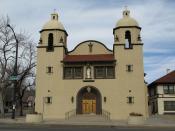It is said that the right to die when faced with a terminal illness or the persistent vegetative state of a loved one is a very personal and individual decision that should be made only by the patient in question or when able, his/her family. Because euthanasia has no true legal ramifications in today's society, it is proclaimed suicide if preformed by the patient him/herself or murder if performed by another. Given the advancement of modern medical technology that assist in prolonging life by way of mechanical means and the constant increase in cost of administering this technology, many believe that patients or families should be allowed to play an active role in deciding what is to be done if faced with a hopeless medical situation. The removal or cessation of life-sustaining medical treatment, however, is not only a question of legal or medical issues but also one of an ethical and religious origin.
Given the controversy that Dr. Jack Kevorkean has presented to society, let us look at how religions of the east and west view the right to die.
In the west, opinion polls continuously show that vast majorities of people professing all faiths support a change in the law for voluntary euthanasia. Even among Roman Catholics, more people support the right to die than oppose it despite church opposition. Regardless of this fact, the Catholic Church is the largest single funding body opposed to euthanasia. It along invests more money than that all the combined resources of the right to die organizations around the world. The Catholic Church actively uses the threat of excommunication as a tactic to prevent its members from choosing euthanasia. Other churches, including Episcopalian, Unitarian, Methodist, Presbyterian and the Quaker movements are among the most liberal, allowing individual decision making in the...


